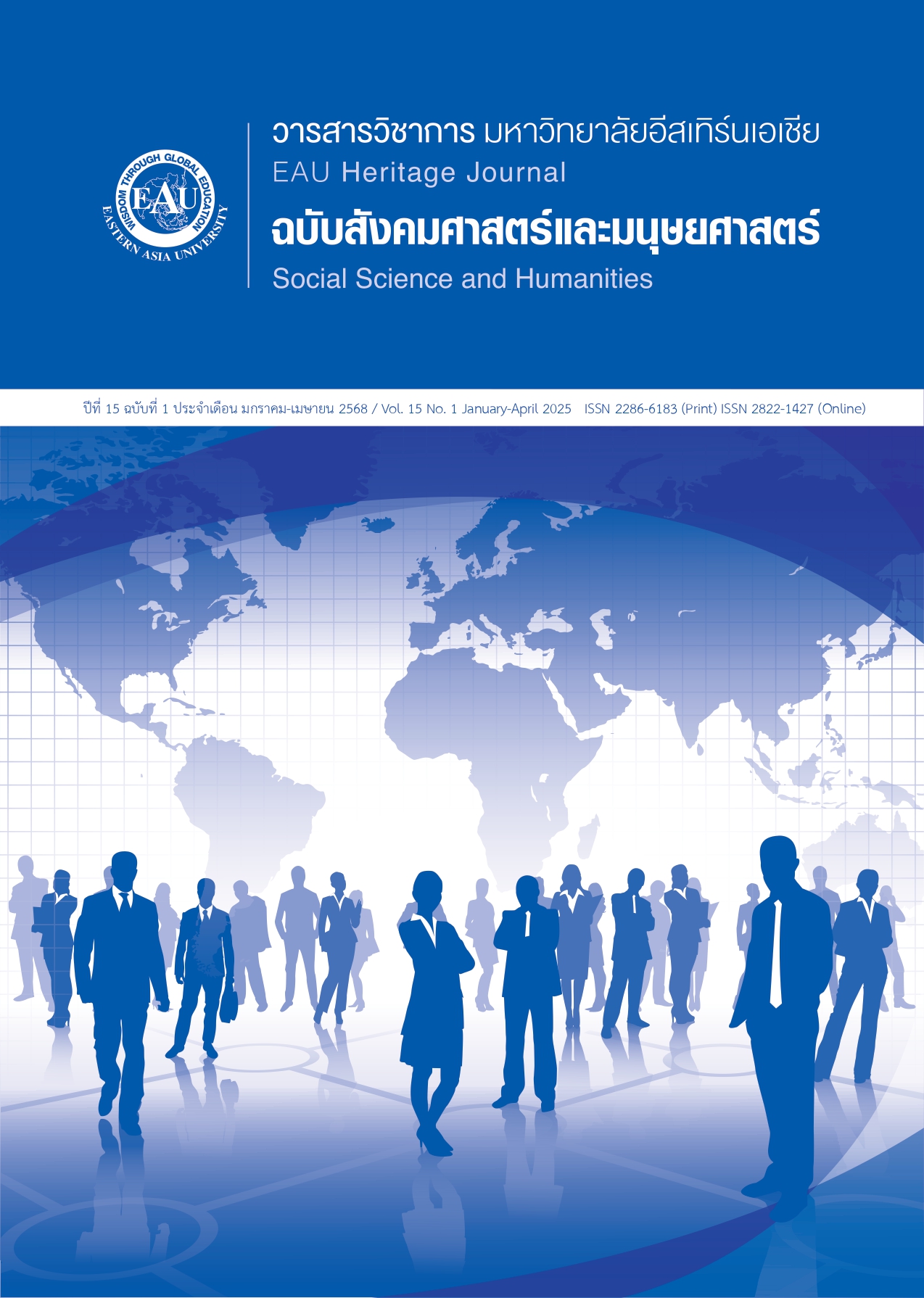Future Perspectives on Aviation Safety: 21st Century Change Impacts
Keywords:
Aviation Safety, 21st Century Changes, Aviation Technology, Sustainable Development, Climate ChangeAbstract
This paper examines future aviation safety trends impacted by 21st century changes, analyzing four major areas (1) Science and technology, covering developments in avionics, cloud technology, unmanned aircraft, and vertical take-off and landing aircraft (2) Economic and social aspects, focusing on sustainable development goals set by the United Nations (3) Lifestyle and working conditions, reflecting increasing pressure and stress in the aviation industry and (4) Environmental factors, addressing impacts of global warming and climate change. The paper also presents policy and practical recommendations for addressing these changes.
References
Airlines for America. (2021). Air travelers benefit from robust industry competition. Retrieved from
https://www.airlines.org/air-travelers-benefit-from-robust-industry-competition/
Amornpipat, I. (2020). Stress of employees working in the aviation industry: A study of Bangkok
Airways Limited ground service agents. International journal of scientific and research
publications, 10(8), 441-445. Doi: https://doi.org/10.29322/JSRP.10.08.2020.p10454
Aviation Safety Network. (2023). Incident Boeing 777-200 JFK International Airport. Retrieved from
https://aviation-safety.net/database/record.php?id=20230113-0
Bureau d'Enquêtes et d'Analyses. (2016). Final report: Accident to the Airbus A320-211, registered
D-AIPX, operated by Germanwings. Retrieved from
https://www.bea.aero/uploads/tx_elydbrapports/BEA2015-0125.en-LR.pdf
Cheng, N., Shi, Z., & Wang, Y. (2022). Research on safety assessment method on integrated modular
avionics based on cascading effect analysis. Journal of physics: Conference series, 2228(1),
Doi: https://doi.org/10.1088/1742-6596/2228/1/012046
Civil Aviation Administration of China. (2024). Type certification granted for EH216-S. CAAC.
Cohen, J. (2006). Hurricane Katrina: Impact on aviation safety. Journal of environmental safety,
(4), 34-42.
Environmental Defense Fund. (2017). 5 ways climate change can make air travel worse. Retrieved
from https://www.edf.org/card/5-ways-climate-change-can-make-air-travel-worse
Eurocontrol. (2023). Understanding the impact of climate change on aviation. Retrieved from
https://www.eurocontrol.int/article/understanding-impact-climate-change-aviation
European Union Aviation Safety Agency. (2023). Certification update: Volocopter testing. EASA.
Farhud, D. D. (2015). Impact of lifestyle on health. Iranian journal of public health, 44(11),
-1444.
Federal Aviation Administration--FAA. (2023). Safety alert for operators: Fatigue risk management.
U.S.: Department of Transportation.
FAA. (2024). Certification progress report: Joby aviation. FAA.
Fila, G. V. (2021). Work-life balance for aircrews. Retrieved from
https://www.modul.ac.at/uploads/files/Theses/Master/Grad_2021/MSC_2021/1521021_Fila_Thesis.pdf
Flight Safety Foundation. (2023). Lifestyle and adverse performance effects. Retrieved from
https://skybrary.aero/articles/lifestyle-and-adverse-performance-effects-oghfa-bn
Genovese, D. (2022). Pilot fatigue remains high concern as carriers try to recapture
revenue. Retrieved from https://www.foxbusiness.com/lifestyle/pilot-fatigue-remains-high-concern-carriers-try-recapture-revenue
Haris, S. R. M. (2021). Noise and time pressure effects on situation awareness and aviation
maintenance tasks. Retrieved from https://commons.erau.edu/cgi/viewcontent.cgi?article=1658&context=edt
Hobbs, A. (2016). Remotely piloted aircraft systems. Retrieved from
https://ntrs.nasa.gov/api/citations/20160014467/downloads/20160014467.pdf
International Civil Aviation Organization--ICAO. (2018). Safety management manual. (4thed.).
Retrieved from https://www.skybrary.aero/bookshelf/books/5863.pdf
ICAO. (2023). ICAO and the United Nations Sustainable Development Goals. Retrieved from
https://www.icao.int/about-icao/aviation-development/pages/sdg.aspx
Keller, J., Mendonca, F. A. C., & Adjekum, D. K. (2022). Understanding factors underlying fatigue
among collegiate aviation pilots in the United States. Safety, 8(2),
doi: https://doi.org/10.3390/safety8020046
Konopliov, A. (2023). Shift work statistics & facts (2023). Retrieved from
https://redline.digital/shift-work-statistics/
Kumar, S., & Smith, M. (2023). Business pressures and aviation safety: Industry analysis. Journal of
Air transport management, 56(2), 145-159.
Lee, D., & Chen, K. (2023). Post-COVID aviation workforce challenges. International journal of
aviation management, 15(3), 278-292.
Lee, D., & McDermid, C. (2019). Asia's aviation industry is booming, so why isn't it
making money?. Retrieved from https://www.scmp.com/week-asia/economics /article/2184740/asias-aviation-industry-booming-so-why-isnt-it-making-money
Leong, T. (2021). Tropical storms and aviation safety: A study of Southeast Asia's weather patterns.
International journal of aviation, 23(1), 59-65.
Lilium, & EASA. (2023). Design organization approval certification report. Lilium.
Miller, B. (2014). Does competition among employees work as a motivator?.
Retrieved from https://hrdailyadvisor.blr.com/2014/12/12/does-competition-among-employees-work-as-a-motivator/
Mohsan, S. A. H., Othman, N. Q. H., Li, Y., Alsharif, M. H., & Khan, M. A. (2023). Unmanned aerial
vehicles (UAVs): Practical aspects, applications, open challenges, security issues, and future
trends. Intelligent service robotics, 10(1), 109-137. Doi: https://doi.org/10.1007/s11570-022-00452-4
National Transportation Safety Board. (2023). Investigation report: FedEx incident 2022. NTSB.
_______________________________. (2024). Preliminary report: Alaska Airlines flight 1282 Boeing
-9 MAX. NTSB.
Noonkong, P. (2014). Get to know cloud computing office of academic resources
and information technology. Retrieved from https://arit.rmutsv.ac.th/th/blogs/82
Nordic Road and Transport Research. (2022). Increased competition in aviation has
negative effects on pay and working conditions. Retrieved from https://nordicroads.com/increased-competition-in-aviation-has-negative-effects-on-pay-and-working-conditions/
O'Hagan, A. D., Issartel, J., Mc Ginley, E., & Warrington, G. (2020). A pilot fatigue management
strategy for extended flight duty periods in commercial aviation. Aerospace medicine and
human performance, 91(12), 937-943.
Price, A. (2022). When a competitive workplace culture turns toxic. Retrieved from
Reilly, A. (2021). The future of flight will be built on safety. Retrieved from
https://aerospacetechreview.com/the-future-of-flight-will-be-built-on-safety/
SKYbrary Aviation Safety. (2023). Fatigue risk in maintenance. Retrieved from
https://skybrary.aero/articles/fatigue-risk-maintenance
Smith, R., & Brown, D. (2019). Wildfires and aviation: A case study of the 2018 California fires.
Aviation safety review, 19(2), 48-56.
Steinhage, A., Cable, D., & Wardley, D. (2017). The pros and cons of competition among
employees. Retrieved from https://hbr.org/2017/03/the-pros-and-cons-of-competition-among-employees
Thompson, J., & Garcia, R. (2021). Adaptation to new aviation technologies: A human factors
perspective. Journal of aviation technology and engineering, 8(2), 156-170.
United Nations Sustainable Development. (2015). Sustainable development goals
launch in 2016. Retrieved from https://www.un.org/sustainabledevelopment/blog/2015/12/sustainable-development-goals-kick-off-with-start-of-new-year/
Wilson, D., Driller, M., Johnston, B., & Gill, N. (2022). The prevalence and distribution of health risk
factors in airline pilots: A cross-sectional comparison with the general population.
Australian and New Zealand journal of public health, 40(5), 572-580. Doi: https://doi.org/10.1111/1753-6405.13231
Wisk Aero, & FAA. (2023). Safety testing report: Generation 6 autonomous system. Wisk Aero.
Yang, L., & Hu, J. (2021). The influence of work pressure on airline personnel's work errors in the
internet age. In journal of physics: Conference series, 2021 international conference on
mechanical automation and computer engineering (MACE 2020), 1744(4), 042245, doi:





